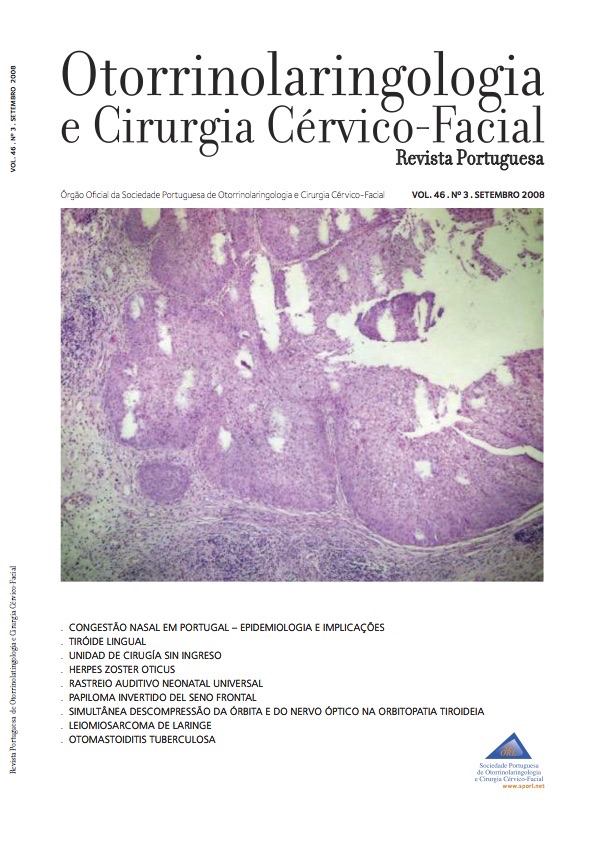Universal neonatal hearing screening: First year of experience in the Ordem do Carmo Hospital
DOI:
https://doi.org/10.34631/sporl.401Keywords:
Hearing Loss, Newborns, Universal Neonatal Hearing ScreeningAbstract
Deafness is the most common sensorial disease that affects million of people all over the world. The privation of the hearing can provoke a significant delay in the language, intervening with the development of the child. The implementation of the program “Rastreio Auditivo Neonatal Universal” (RANU),turn out to be essential for the true precocious intervention. Only a precocious diagnose of childhood deafness can avoid and/or decrease variations in the linguistic, cognitive, social and emotional level of the child, such as the own family. The purpose of this study is to characterize the twelve months of implementation of the “Rastreio Auditivo Neonatal Universal” at the Ordem do Carmo Hospital. The study sample is constituted by 367 the newborns, that have been born at the Ordem do Carmo Hospital in the time between June 2006 and June 2007. It was done a deafness check up to the newborns mentioned before, using the acoustic otoemissions by distortion products. All the collected data were statistically treated, with the guarantee of totally confidence. After that treatment, it was confirmed that the percentage of newborns passed in the check up was equivalent to 82,6 and the percentage of newborns that “failed” the check up was 17,4. The number of false positive was equivalent to 64. All of them have superate the second fase retest. Concluding, the main subject of the study is that the universal neonatal hearing screening is extremely important and must be implanted in all newborns, preferential before leaving the hospital.






